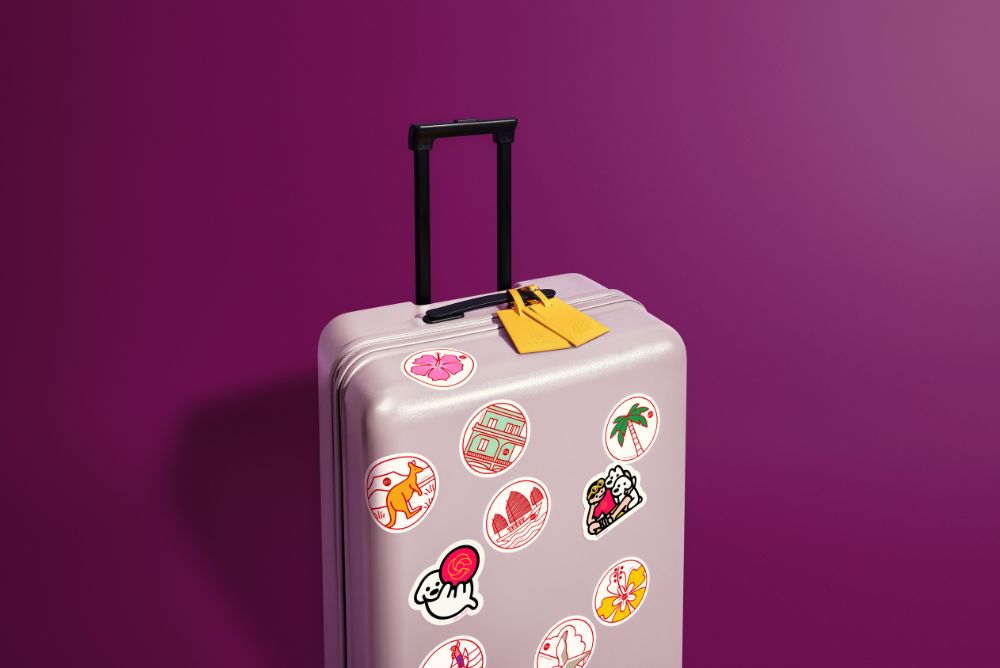Trinity Forum report 3 from Taipei
By Doug Newhouse |

The third session at last week’s Trinity Forum maintained the quality of the first two, with good contributions from airports, suppliers and retailers.
This session began with a brief, but concise presentation on why corporate social responsibility matters in travel retail from Kevin Chiang, General Manager, Ever Rich Duty Free.
It was then complimented by an even briefer but moving ‘thank you’ to all those in the Trinity who have donated to The Philippines disaster fund from Lorenzo ‘Enchong’ Formoso, COO of Duty Free Philippines.

Lorenzo ‘Enchong’ Formoso, COO of Duty Free Philippines.
This was followed by a further Trinity panel, this time addressing ‘The power of investment in delivering a world class retail and food and beverage proposition’. Panellists were asked to examine how focused investment and commitment to airport retail can deliver a step change in the consumer offer.
Con Constandis, Managing Director, Pernod Ricard Asia Travel Retail presented first on investment and value and the issues that need addressing to move the industry forward.
He talked initially about passenger growth and said that the next wave of travellers will not demonstrate the same purchasing behaviour as their parents. It is also important to remember that today’s consumers are travellers first and shoppers second.
Most people spend more time outside the airport en-route than they do in the airport, said Constandis and as a result the marketing must begin outside as part of a consolidated strategy to win over the consumer.
Turning to successful partnerships, he said one good example he could recall was in 2010 at Hong Kong Airport with the Martell Experience for consumers. What he liked about it was that the decision to do it was taken quickly by Sky Connection [the operator at the time-Ed] and it was ‘a real partnership’.

Con Constandis, Managing Director, Pernod Ricard Asia Travel Retail.
BEING PREPARED TO LEARN
Similarly he cited an Absolut store promotion at Kuala Lumpur International Airport last year, which created good consumer engagement from a space that was outside the normal liquor category area.
He described this as a break-even exercise with a collective entrepreneurial spirit and added that you have to trial these exercises and be prepared to learn, as Pernod-Ricard did after its initial Martell exercise wasn’t a particular success.
Constandis said another trend that is important relates to the changing traveller profile, with more females and more innovation and he believes that the Trinity spirit will be key with this. He said the wish list is pretty simple with the number one priority to get them in the store, number two get them buying and number three… repeat lessons one and two as often as possible.

Andrew Day, Group CEO, Maritime Mercantile International and Emirates Leisure Retail.
Andrew Day, Group CEO, Maritime Mercantile International and Emirates Leisure Retail then took to the stage and introduced his operation, pointing to nearly 50 outlets across 11 airports. He said the environment in which customers shop today is changing and it is an all-encompassing consumer experience, integrating food and beverage and shopping.
Day said airports are changing as well and evolving into much more pleasant places and it is really the quality consumer that is behind the rationale for investment. The Trinity is important with partnership and risk and reward and for MMI and ELR this means the Le Clos brand on Dubai Concourse A.
Food and beverage also has a role to play in retail, he said, since where there is customer satisfaction with F&B at the highest level, the same is also true of retail. In the next 15 years passenger numbers are going to double and Day says he believes in integrating food and beverage wherever the retailer can alongside retail.
The massive investment being put in to aircraft and infrastructure has to be matched by retail and F&B he said. He then added that the retailer has been able to create very strong retail environments in Sydney Airport by being creative.
Similarly, the Le Clos operation at Dubai International Airport has a strong reputation and also houses the world’s largest selection for The Macallan single Scotch malt whisky. Jack’s Bar & Grill is also a great partnership between the retailer and Brown-Forman where customers can eat, drink and buy Jack Daniel’s merchandise, he said.

Spencer Sheen, Head of Retail at London Gatwick Airport.
IS EVERYBODY PULLING TOGETHER?
The next speaker was Gerry Munday, Global Travel Retail Director at Furla (see top image) who said that fashion can be a challenge, but she asked whether everybody is really pulling in the same direction.
She readily rightly acknowledged that it is a very broad category that can be very confusing to a consumer and researching the market can also be confusing, while statistics do not always correspond to reality.
Munday said the growth of fashion in travel retail appears to be way ahead of domestic markets, but the main mistake that airport authorities or planners make is not thinking in terms of fashion segmentation and consequently grouping fashion brands inappropriately.
What is the point of having fabulous fashion boutiques if the passenger profile is not right, she asked? She said it can also be a real problem if a fashion brand enters into a three or five-year contract and then the passenger profile changes.
Being at an airport to showcase the brand might be important, but there is a limit, said Munday. Offer appropriate brands that are grouped together appropriately, she said, adding that you wouldn’t see a Hermes boutique next to Coach in domestic markets, so why does it happen in travel retail?
Munday said that it is natural that suppliers are greedy for their brands in terms of space, just as many want even more to bring their brands to life, as consumers want this. But the cost of these exercises in travel retail can be restrictive.
Training courses with staff also need to last at least half a day and not just an hour as has been allocated on occasions in the past. Visual merchandising is also important.
Munday said every Trinity Forum she has ever attended has always addressed the biggest argument of concession fees and whether airports should be awarding contracts with a minimum of five years.

Kevin Chiang, General Manager, Ever Rich Duty Free.
RETROSPECTIVE MAG RELIEF?
She said this question remains valid considering that the brand investment for a monogram store can range from anywhere between $200,000 to $800,000, so the brand and the retailer has a lot to recoup and short-term contracts don’t allow for profit. She said only in year four and five do you see profit on a five-year contract.
Flights being moved from one terminal to another can also have a huge impact on traffic levels, so should an airport then go back to the retailer and reduce the mag [minimum annual guarantee-Ed]. Why should the airport be the only one that makes money, she asked?
Munday also touched on ecommerce saying it will become 5% of Furla’s business in a few years time and the digital area will be even more relevant in future. But to make the most of fashion, airports and retailers need to have more understanding of brands and their requirements and the cost has to be win, win for everyone.
Spencer Sheen, Head of Retail at London Gatwick Airport was up next and he said that with 38m passengers the airport serves more destinations than any other UK airport, while Gatwick is still the busiest single runway in the world with a capacity to handle 45m passengers a year.
Sheen said that new runway creation and expansion is obviously a hot political issue in the UK. He added that today’s Gatwick Airport was essentially created by the break up of BAA and the airport now has six key priorities, with number one to deliver the best possible passenger experience.
Gatwick has just witnessed the biggest year in its history in terms of retail, with all of it based on what he calls ‘sound research’. Customer feedback has been good says Sheen, with Gatwick’s own customer surveys showing that people have really noticed improvements on a selection survey basis of good or excellent, although the F&B performance has dropped and the airport management is trying to find out why this is.
He then showed an image of Gatwick with a second runway and said it represents half the cost of a new facility at Heathrow and will impact on only one 20th of the people that would be affected by a new facility at Heathrow.
Sheen added that there could also be significant ramifications for Gatwick if it is awarded permission to build any new runway ahead of Heathrow.
Alcohol insights: Conversion up, spend down in Q4
Conversion of visitors in the alcohol category in duty free has risen to 54% in Q4 2023,...
TR Consumer Forum: Agenda & speakers revealed
Influential speakers will unpack the most effective strategies for understanding and engaging...
Saudia Arabia's KKIA unfurls T3 duty free expansion
King Khalid International Airport (KKIA) has unveiled the first stage of its much-vaunted duty...
-
 International,
International,Alcohol insights: Conversion up, spend down in Q4
-
 International,
International,TR Consumer Forum: Agenda & speakers revealed
-
 International,
International,Saudia Arabia's KKIA unfurls T3 duty free expansion

In the Magazine
TRBusiness Magazine is free to access. Read the latest issue now.

 Trbusiness. The travel retail Trbusiness. The magazine for global retail and duty free professionals.
Trbusiness. The travel retail Trbusiness. The magazine for global retail and duty free professionals.





















